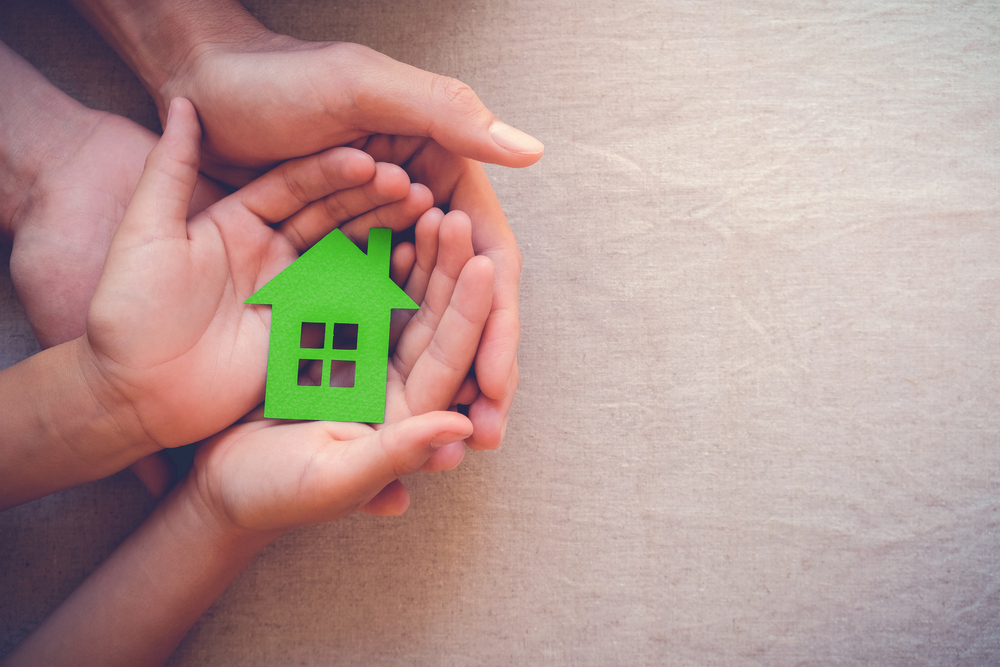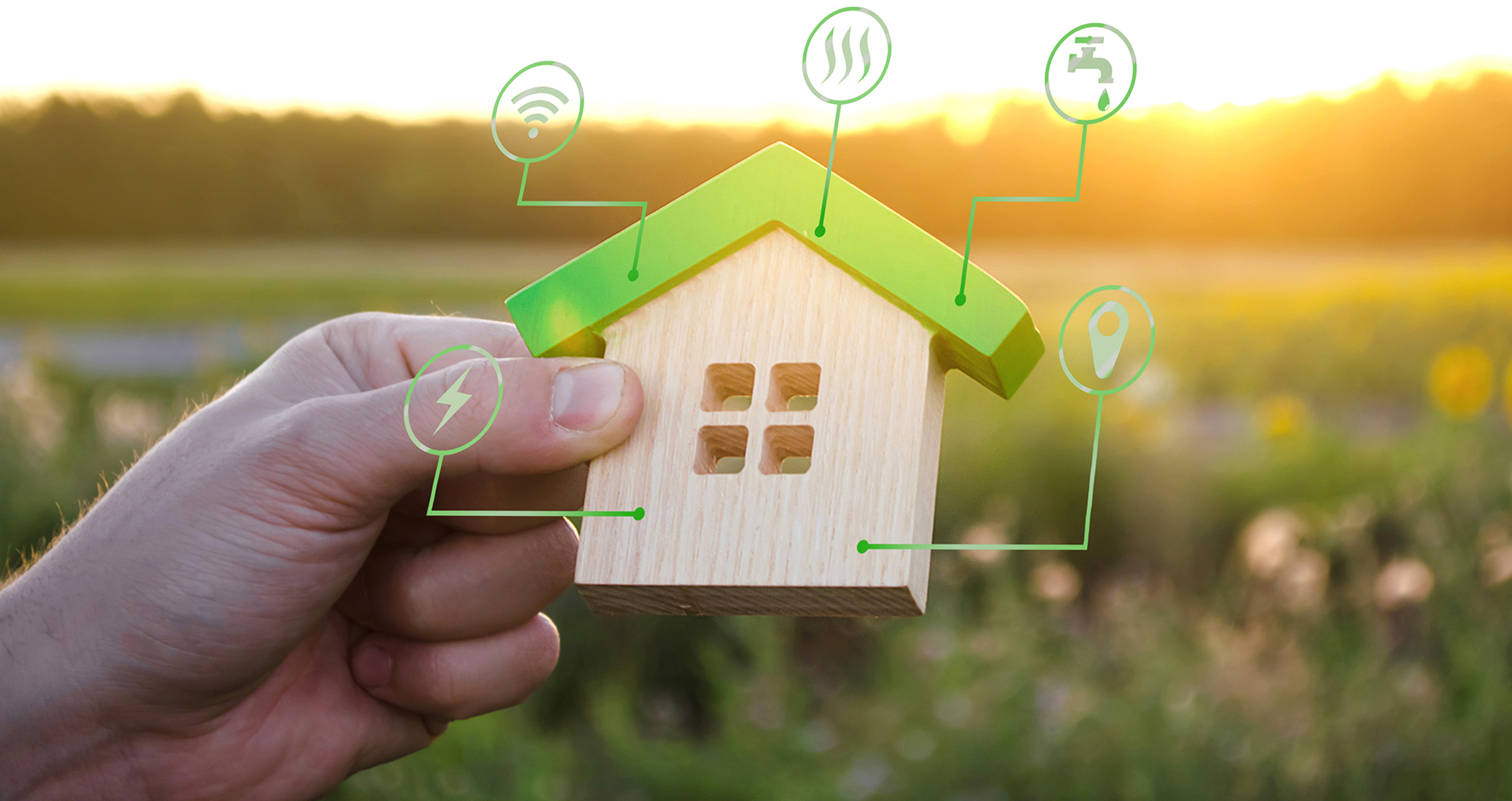Climate change poses significant challenges. It has prompted the UK to focus on making homes more environmentally sustainable. As a result, the momentum toward sustainability in the UK housing sector is growing due to increased awareness of homes’ environmental impact.
For example, look at storms like Babet and Ciaran, which raise concerns beyond structural integrity. These storms we witnessed in Autumn, aside from causing havoc, have left homeowners wanting assurance that their properties aren’t adding to broader environmental issues.
From reevaluating energy consumption to redefining waste management strategies, homeowners are taking proactive steps toward crafting eco-friendly living spaces. Keep reading as we look into the practical aspects of the green revolution, dissecting progress made and highlighting opportunities for future enhancements.
Energy-Efficient Homes: A Practical Approach
The focus is practical insulation and energy conservation measures to achieve greener homes. This is why UK homeowners invest significantly in insulation materials beyond retaining heat. Double-glazed windows, weatherstripping, and loft insulation have become standard practices, not just for a cosier living space but also for substantial energy savings.
In fact, statistics from the UK’s Energy Saving Trust underscore the impact of proper insulation. This cuts household expenses and significantly contributes to the overarching goal of reducing carbon emissions. The widespread adoption of insulation measures reflects the committed effort of UK homeowners to embed energy efficiency into their homes.

Solar Panels And Renewable Energy: Practical Steps For A Cleaner Tomorrow
One route worth considering to take when creating an energy-efficient home is investing in solar panels. Solar panels have become prevalent in environmentally conscious homes throughout the UK. They provide a clean and renewable energy source by harnessing the sun’s power for electricity generation. The UK government’s Feed-in Tariff (FiT) scheme has helped to play a pivotal role in establishing solar panels as a mainstream solution for meeting home energy needs.
The increasing prevalence of solar panels signifies more than just an acceptance of solar energy; it positions UK homes as active contributors to a sustainable energy future. The visual impact of numerous homes adorned with solar panels during the morning commute underscores a significant cultural shift towards the widespread adoption of renewable energy sources.
This trend marks a positive transformation in individual households and aligns with broader efforts to mitigate the environmental impact of traditional energy sources. As solar panels become integral to the UK’s residential landscape, they symbolise a collective commitment to reducing carbon footprints and fostering a more sustainable energy ecosystem. Overall, this surge in solar panel adoption reflects a positive evolution in the country’s approach to energy consumption, with homes increasingly becoming key players in the transition towards a greener and more sustainable future.
Upgrading To Efficient Boilers: The Core Of Home Heating
Undoubtedly, heating accounts for a substantial portion of a home’s energy consumption. As such, the choice of boilers significantly impacts overall energy efficiency. Outdated models, especially older boilers, tend to be less energy-efficient, leading to higher fuel consumption and increased carbon emissions.
Upgrading to more efficient boilers is a crucial step toward greener UK homes. Modern condensing boilers, in particular, extract more heat from the fuel, achieving efficiency levels surpassing 90%. The Boiler Upgrade Scheme, initiated by the UK government in 2022, encourages homeowners to say goodbye to outdated boilers, fostering the adoption of greener heating technologies. This strategic move aims to accelerate the adoption of greener heating technologies, mitigating the environmental impact of residential heating systems. The new boiler cost can be a major stumbling block for many homeowners, but if you’re asking, “How much is a new boiler?” it pays to research. A good boiler company will find you the best deal and work with you to create a finance plan.
Waste Reduction And Recycling Initiatives: Practical Strategies For Responsible Living
It is essential to tackle the impact of household waste to help create environmentally friendly homes. The UK has made significant progress in waste reduction and recycling, diverting waste from landfills and endorsing the principles of a circular economy.
These approaches are helping to minimise waste but also encourage homeowners to make responsible choices in daily life. By actively engaging in waste reduction efforts, the UK is shaping a culture of conscious consumption. This shift towards mindful choices benefits the environment and aligns with a broader commitment to sustainable living practices. As households increasingly embrace these practical strategies, the overall environmental impact diminishes, paving the way for a more responsible and sustainable approach to daily living.
Single-Use Plastics And Packaging: A Conscious Departure
Another waste reduction method many of us have embraced is the reduction of single-use plastics and excessive packaging. Government initiatives and public awareness campaigns have yielded tangible results, contributing to a notable decrease in the use of plastic bags. Up and down the country, households proactively seek alternatives to single-use plastics, marking a shift towards more mindful consumption practices.
Also, local authorities in the UK are actively endorsing recycling programs and fostering responsible waste disposal habits. The emphasis on recycling and the reduction of single-use plastics reflects a collective commitment to mitigating the environmental impact of household waste. There has even been a significant departure from when people protested against paying for plastic bags at supermarkets; now, there’s a noticeable shift in public consciousness. This evolution signifies a growing awareness and willingness among the populace to address environmental concerns at a personal level. As people actively seek alternatives and engage in responsible waste disposal, they contribute to a broader effort aimed at sustainable living and reducing the ecological footprint of daily activities.
Circular Economy Practices: Real-World Consumption Shifts
The adoption of a circular economy is rising in the UK, emphasising product design for durability and recyclability. Homeowners are increasingly choosing items with extended lifespans and exploring repair and refurbishment options to extend their usability.
Initiatives such as the UK’s Waste and Resources Action Programme (WRAP) actively promote circular economy practices. They champion sustainable consumption and waste reduction, contributing to a broader cultural shift towards more responsible living. As households across the UK embrace these principles, the cumulative impact of their daily activities on the environment significantly decreases.
This practical approach involves individual choices and broader efforts to reshape consumer habits. By opting for products with longer life cycles and supporting repair and refurbishment initiatives, households become integral contributors to reducing waste and promoting sustainable practices. As this mindset becomes ingrained in daily life, it reflects a collective commitment to minimising environmental impact and fostering a more sustainable and responsible society.
Smart Home Technologies: Practical Efficiency Beyond Trends
As the concept of smart homes evolves, attention is turning toward intelligent water management systems. These systems optimise home water usage by leveraging sensors, data analytics, and automation.
For example, smart water meters play a crucial role by offering real-time insights into water consumption, allowing homeowners to identify and address inefficiencies. Automated irrigation systems, equipped with weather sensors, adapt watering schedules based on environmental conditions, effectively reducing water wastage in gardens.
The integration of smart water technologies aligns with the broader vision of creating homes that are both energy-efficient and mindful of resource consumption. As concerns about water scarcity continue to grow, these innovations empower homeowners to contribute actively to sustainable water usage practices. This practical approach enhances the efficiency of daily water consumption and addresses environmental challenges. As smart home technologies become more commonplace, they represent a tangible step towards responsible resource management, reflecting a broader commitment to sustainable living practices.

AI-Driven Energy Optimisation: Practical Intelligence For Efficiency
Without a doubt, artificial intelligence (AI) is playing a pivotal role in reshaping homes into intelligent and energy-efficient spaces. AI-driven systems conduct in-depth analyses of energy consumption patterns, predict usage trends, and automate the optimisation of home appliances for maximum efficiency.
Smart thermostats incorporate AI algorithms, learn the preferences and routines of occupants, and fine-tune heating and cooling systems to minimise energy consumption. Likewise, AI-powered home energy management systems continually optimise the operation of various devices based on real-time data, contributing to overall energy savings.
The convergence of AI and smart home technologies marks a significant frontier in sustainable living, enabling homes to dynamically adapt to occupants’ needs while minimising their environmental impact. This transformative shift is not just about Hollywood attempting to use AI for replicating actors; it represents a tangible step towards securing a more sustainable future. As AI becomes increasingly integrated into daily life, its practical applications contribute to more efficient energy usage and reinforce a commitment to responsible living practices.
Green Transportation And Sustainable Commuting: Practical Shifts Beyond The Home
Aside from the surge in conversations around AI, there has also been a rise in electric vehicles (EVs). EVs have experienced a notable surge in popularity, with an increasing number of UK residents opting for electric cars as an eco-friendly mode of transportation. Government incentives and the expanded charging infrastructure have played pivotal roles in fostering the widespread adoption of EVs, contributing to the broader vision of establishing a sustainable and clean transportation ecosystem.
Looking beyond electric vehicles, the exploration of alternative commuting options plays a significant role in diminishing the environmental impact of daily travel. Public transportation, cycling, and walking emerge as sustainable alternatives that align with the principles of eco-friendly living.
The global shift towards remote work, accelerated by technological advancements, has left its mark on commuting patterns. Many UK residents now enjoy the flexibility of working from home, diminishing the necessity for daily commutes. This trend benefits the environment by reducing carbon footprints and enhancing the work-life balance for individuals, reflecting a practical adaptation to evolving work cultures and environmental considerations.
Challenges And Opportunities On The Horizon: Practical Considerations
Despite commendable strides in green living, persistent challenges demand concerted efforts to sustain momentum towards sustainability. There is a pressing need for widespread awareness and education on eco-friendly practices, as homeowners may lack awareness of the latest technologies, incentives, and initiatives contributing to greener homes.
Infrastructure limitations, such as the availability of charging stations for electric vehicles and the accessibility of sustainable transportation options, pose challenges. Collaborative efforts between the government and the private sector are essential to overcome these obstacles and create an environment where sustainable living is accessible to all.
Government policies and regulations play a significant role in shaping the landscape of green living. Continued support for renewable energy incentives, advancements in energy efficiency standards, and implementing eco-friendly building codes are critical components in fostering sustainable practices. These policy measures guide and incentivise individuals and businesses to adopt environmentally responsible practices, ensuring a collective move towards a more sustainable and eco-conscious future.
Sustainable Materials: Building Responsibly For The Future
The choice of construction materials plays a pivotal role in the sustainability of homes. The growing utilisation of recycled and upcycled materials in construction reduces the demand for new resources and minimises waste. Homeowners, architects, and builders are actively exploring innovative approaches to incorporate recycled materials into residential construction projects.
Materials such as recycled steel, reclaimed wood, and upcycled glass contribute to developing homes with a lower environmental impact. Beyond their eco-friendly attributes, these materials often bring unique character and aesthetic appeal to homes, creating sustainable and visually engaging spaces.
Government initiatives that promote sustainable construction materials, coupled with the increasing awareness of eco-conscious consumers, are driving the construction industry’s adoption of recycled and upcycled materials. This shift towards sustainable materials signifies a fundamental home transformation, emphasising a commitment to responsible and resource-efficient construction practices.
Paving The Way For A Greener Future
The shift towards sustainable living in the UK extends beyond individual homes, incorporating green architecture, sustainable materials, and community-wide initiatives. Collective efforts from individuals, communities, and policymakers are moulding a future where homes actively contribute to environmental conservation. Embracing green building practices and integrating smart home technologies are key components of this evolution. As these trends progress, homes in the UK are anticipated to embody energy efficiency, environmental consciousness, resilience, connectivity, and seamless integration into sustainable communities. This ongoing transformation reflects a broader commitment to environmentally responsible living and a vision for homes that meet present needs and contribute positively to the long-term well-being of residents and the environment.





